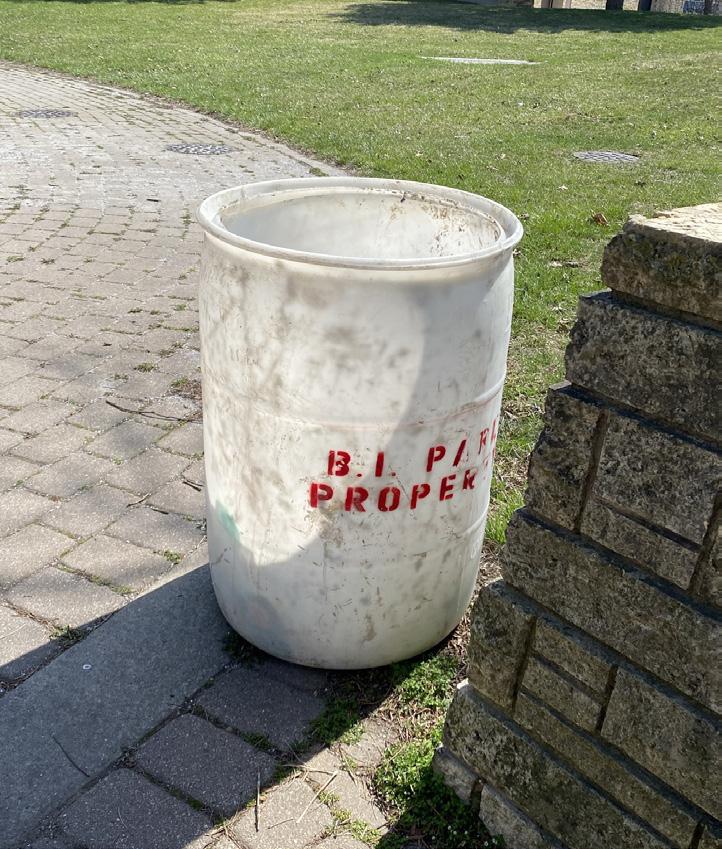
2 minute read
Figure 4-5: Current Waste Bins
Mount Prospect, IL has a comprehensive waste collection service. Residents can separate out their food and organic yard waste. This is then collected separately from other trash. The program has diverted 35% waste away from landfill and was recognized by the National Waste & Recycling Association. The program runs from April to mid- December at no additional costs for residents.
Blue Islanders in the study area will be provided with a container for organic waste. In this container, residents will collect their organic waste, which includes food and yard waste. LRS will then collect the organic waste and efficiently dispose of it.
Advertisement
This program involves an increased number of LRS collecting trucks in the area. To offset issues caused by increased emissions, Blue Island and LRS should redesign the pickup schedule. For example, while collection for regular waste is weekly, organic collection pickup can be every 2 or 3 weeks, or viceversa. The truck increase may also be balanced by a decrease in public waste collection due to newly installed solar compacting bins as discussed in the next section.
6.1.3 Zero Waste Disposal Bins
As part of its renegotiation, Blue Island should replace its public, single-compartment trash bins with solar compacting receptacles. The city’s current public trash receptacles do not offer a recycling option and are simple, large plastic barrels (see Figure ??). Not only does this not encourage proper disposal of recyclable waste, but the unsightly bins do not instill pride in residents for their city. Depending on the model chosen, solar compacting trash receptacles offer a variety of benefits. Standard bins use built-in solar panels to power their machinery, compacting separated trash and recycling bins to reduce volume and decrease the number of pickups necessary. The best use of a solar compactor is when paired with software that alerts the trash collector as to when the bin is full so that unnecessary trips are not taken. LRS employees would need to be trained on this software and change their routes accordingly.
Figure 4-5: Current Waste Bins Community Education
The success of this program hinges on properly communicating with residents. Blue Island’s Marketing Department and Public Library will collaborate with LRS to release a campaign. LRS will provide much of the content of the campaign while Blue Island focuses on effective community outreach.
This campaign will be in both Spanish and English and will address general recycling best practices and inform residents how to participate in the organic waste collection and recycling programs. The information will be distributed through various forms including:
• Community meetings at the public library • Online informational sessions, later to be uploaded to Blue Island’s website • Flyers • Social Media notices





